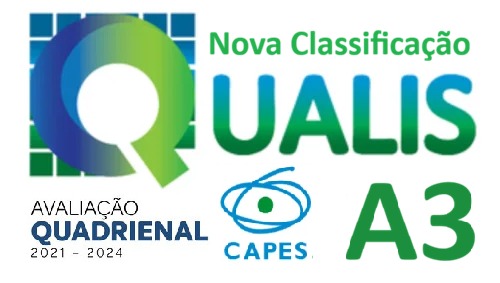Study of cesium sorption by a Brazilian bentonite
DOI:
https://doi.org/10.15392/bjrs.v9i1A.1519Keywords:
bentonite, cesium, sorption, multiple barriers.Abstract
Engineered and natural barriers compose the disposal system of near surface repository to store low and intermediate level radioactive wastes. Waterproofing barriers are constituted of clays, such as the bentonite, in order to avoid or to limit the release of radionuclides to with consequences to the environment and humans. Characteristics such as high cation exchange capacity, high adsorption capacity and high sealing capacity, are taken into consideration for choosing this material. The migration of radionuclides through protection barriers can occur in a variety of ways, such as surface water infiltration, groundwater intrusion, among others. Diffusion is the process which governs the contaminant transport through soil barriers. Adsorption is one of the processes that could be considered in the diffusion mechanism, and sorption isotherms are obtained from values measured in the batch-adsorption experiments. Therefore, such experiments were carried out in order to estimate the cesium sorption by the bentonite. The quantitative analysis was performed using atomic absorption and the energy dispersive X-ray fluorescence spectrometry. With the purpose to calculate the true value of cesium sorption, a mass-balance was made considering all the steps of the batch experiment, and it was found a 6% loss in the whole process. The quantity of cesium sorbed by the bentonite was 66.7 mg.g-1. At the moment, eight additional experiments are being performed, using solutions with different cesium concentrations, leading to all the necessary data for the isotherm.
Downloads
References
CNEN – Comissão Nacional de Energia Nuclear. Seleção e escolha de locais para depósitos de rejeitos radioativos. Resolução 014/89, CNEN-NE-6.06. Rio de Janeiro, Rio de Janeiro, Brazil. 1990. Available at: <http://appasp.cnen.gov.br/seguranca/normas/pdf/Nrm606.pdf>. Last accessed: 25 June 2020.
CNEN – Comissão Nacional de Energia Nuclear. Critérios de aceitação para deposição de rejeitos radioativos de baixo e médio níveis de radiação. Resolução 012/02, CNEN-NN-6.09. Rio de Janeiro, Rio de Janeiro, Brazil. 2002. Available at: <http://appasp.cnen.gov.br/seguranca/normas/pdf/Nrm609.pdf>. Last accessed: 25 June 2020.
CNEN – Comissão Nacional de Energia Nuclear. Gerência de Rejeitos Radioativos de Baixo e Médio Níveis de Radiação. Resolução 167/14, CNEN NN 8.01. Rio de Janeiro, Rio de Janeiro, Brazil. 2014. Available at: <http://appasp.cnen.gov.br/seguranca/normas/pdf/Nrm801.pdf>. Last accessed: 25 June 2020.
IAEA – International Atomic Energy Agency. Scientific and technical basis for the near surface disposal of low and intermediate level waste. Technical reports series, No. 412, Vienna: IAEA, 2002. 67p.
IAEA – International Atomic Energy Agency. Classification of radioactive waste. General Safety Guide series, No. GSG-1, Vienna: IAEA, 2009. 48p.
IAEA – International Atomic Energy Agency. Selection of Technical Solutions for the Management of Radioactive Waste. TECDOC-1817, Vienna. IAEA, 2017. 112p.
IAEA – International Atomic Energy Agency. Performance of engineered barrier materials in near surface disposal facilities for radioactive waste. TECDOC-1255, Vienna. IAEA, 2001. 56p.
BOHNHOFF G. L.; SHACKELFORD C. D. Hydraulic Conductivity of Chemically Modified Bentonites for Containment Barriers, In: 7th INTERNATIONAL CONGRESS ON ENVIRONMENTAL GEOTECHNICS, 2014, Austrália. Annals...Austrália: International Society of Soil Mechanics and Geotechnical Engineering, 2014, pp.440.
TELLO, C.C.O. Efetividades das Bentonitas na retenção de césio em produtos de Rejeitos Cimentados, Tese de Doutorado em Engenharia Química, Campinas: Faculdade de Engenharia Química/Universidade Estadual de Campinas, Brazil, 2001. 167p.
SKB – Svensk Kärnbränslehantering AB. Models for Diffusion in Compacted Bentonite. TR-15-06, Estocolmo, Suécia. SKB, 2016. 52p.
BRADY N. C.; WEIL R. R. Elementos da natureza e propriedades dos solos, 3rd ed. Porto Alegre, Brazil : Bookman (2012).
OLSZEWSKA W.; MISKIEWICZ A.; ZAKRZEWSKA-KOLTUNIEWICZ G.; LANKOF L.; PAJAK L. Multibarrier system preventing migration of radionuclides from radioactive waste repository. Nukleonika, v. 60, n. 3, p. 557-563, 2015.
EPA – Environmental Protection Agency. Understanding Variation in Partition Coefficient, Kd, values. Volume 1: The Kd Model, Methods of Measurement, and Application of Chemical Reaction Codes. EPA 402-R-99-004A, Washington D.C, United States, EPA, 1999. 212p.
EPA – Environmental Protection Agency. Technical Resource Document: Batch-type Procedures for estimating soil adsorption of chemical. EPA 530 SW-87-006-F, Washington D.C, United States, EPA, 1992. 116p.
SOARES, M. R. Coeficiente de distribuição (KD) de metais pesados em solos do estado de São Paulo. Tese de Doutorado em Agronomia: solos e nutrição de plantas da Escola Superior de Agricultura “Luiz de Queiroz”, Universidade de São Paulo, Piracicaba, São Paulo, Brazil, 2004. 214p.
ANM – Agência Nacional de Mineração. Sumário Mineral Brasileiro 2018. Brasília, Distrito Federal, Brazil. 2020. Available at: <http://www.anm.gov.br/dnpm/publicacoes/serie-estatisticas-e-economia-mineral/sumario-mineral/pasta-sumario-brasileiro-mineral-2018/
bentonita_sm_2018>. Last accessed: 27 June 2020.
TEIXEIRA V.G.; COUTINHO F. .M. B.; GOMES A. S. Principais métodos de caracterização da porosidade de resinas à base de divinilbenzeno. Química Nova, v. 24, n. 6, p. 808-818, 2001.
GREGG S. J.; SING K. S. W. Adsorption, Surface Area and Porosity, 2rd ed., London: Academic Press, 1982.
Downloads
Published
Issue
Section
License
Copyright (c) 2021 Brazilian Journal of Radiation Sciences

This work is licensed under a Creative Commons Attribution 4.0 International License.
Licensing: The BJRS articles are licensed under a Creative Commons Attribution 4.0 International License, which permits use, sharing, adaptation, distribution and reproduction in any medium or format, as long as you give appropriate credit to the original author(s) and the source, provide a link to the Creative Commons license, and indicate if changes were made. The images or other third party material in this article are included in the article’s Creative Commons license, unless indicated otherwise in a credit line to the material. If material is not included in the article’s Creative Commons license and your intended use is not permitted by statutory regulation or exceeds the permitted use, you will need to obtain permission directly from the copyright holder. To view a copy of this license, visit http://creativecommons.org/licenses/by/4.0/



























